Kroc School Brings Emily Nagisa Keehn Aboard as Assistant Dean of Graduate Programs
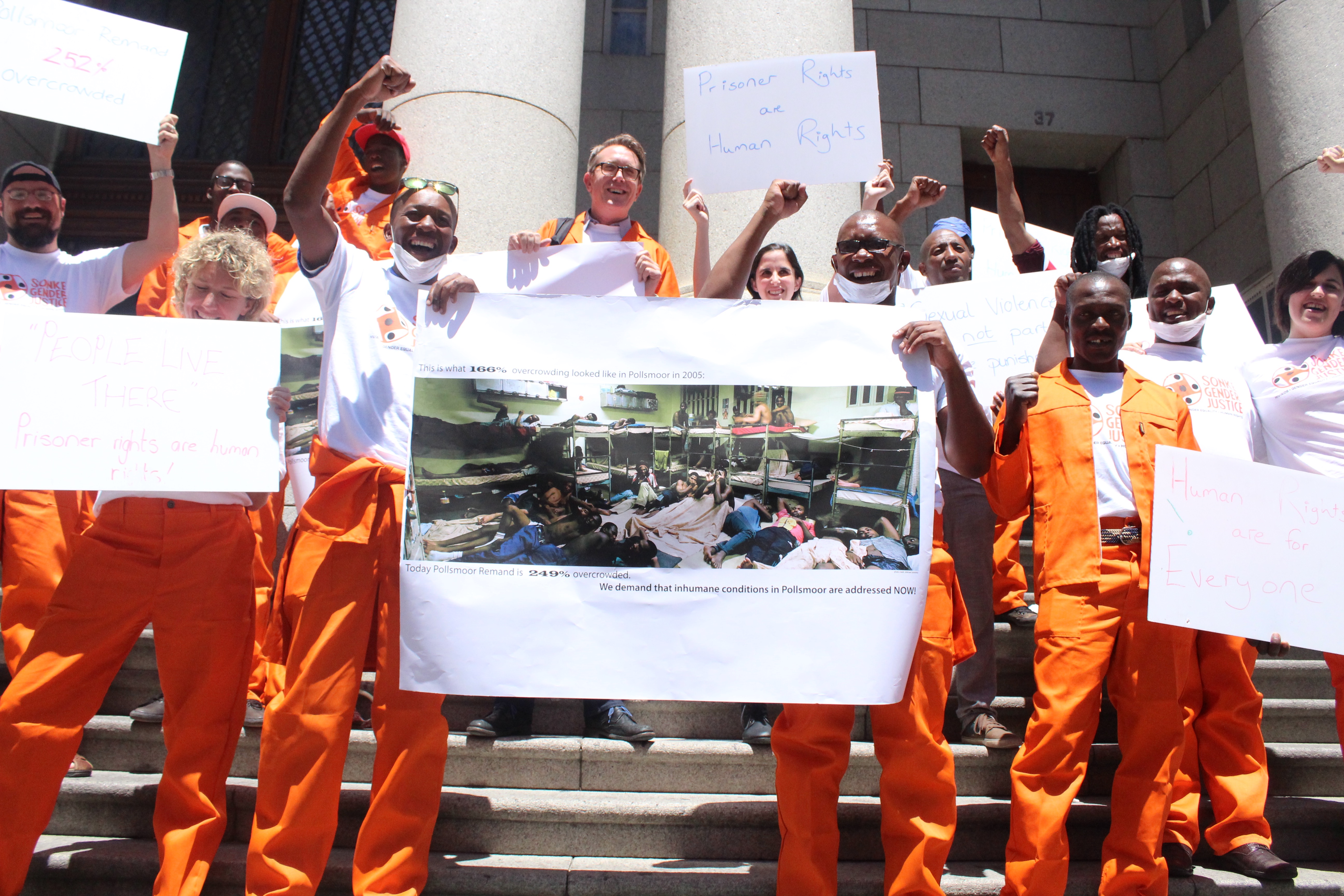
Kroc School Brings Emily Nagisa Keehn Aboard as Assistant Dean of Graduate Programs
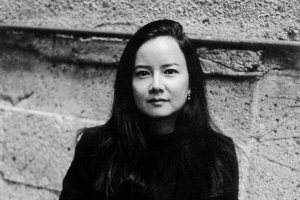
begin quoteWe are facing catastrophic climate change, and threats to democracy, peace, and human rights here and around the world. The next generation of changemakers and peacebuilders has to be more audacious and effective than the last.
In July 2019, the Kroc School welcomed a new member of its growing team, Emily Nagisa Keehn, J.D., as its Assistant Dean of Graduate Programs.
To help the Kroc School community get to know her better, Emily answered the following questions about her career and life, and the path that led her to the Kroc School.
How would you describe yourself, personally and professionally?
The guiding principle in my life is to promote compassion and understanding. I do this as a human rights activist, educator, and university administrator in the peace and justice arena. In both professional and personal spheres, I view myself as a bridge builder—across disciplines, issues, and social divides. I’m deeply committed to advocating for the rights and well-being of people who are socially marginalized, and to educating and training the next generation of leaders to do the same.
Fundamentally, I’m an optimist and I believe that there are enough resources for all of us to live lives in which our dignity and humanity are respected. Peace and justice don’t have to be a zero-sum game.
What are the highlights of your career that led you to the Kroc School?
I originally studied Anthropology and Archaeology for my bachelor’s at UC San Diego. While I was a Dorot Scholar on an excavation in Israel, I plugged into the Asian community and got to know migrant workers from Thailand and the Philippines. I began learning about human trafficking and then quickly decided to shift gears and dedicate my career to human rights.
I studied law at UCLA, where I took interdisciplinary human rights courses, bridging public health, and gender and sexuality studies. I learned of a South African NGO called Sonke Gender Justice, which works to prevent gender-based violence and reduce the spread and impact of HIV (South Africa has the largest HIV epidemic in the world, and some of the highest rates of violence against women and girls and violence between men). Sonke was innovative in its emphasis on primary prevention. It sought to address the upstream drivers of violence and HIV using a broad spectrum of interventions. Human rights violations are often at the core of these problems—be it discrimination based on gender, race, sexuality, or nationality, or laws that criminalize sex workers and drug users. Sonke’s founder brought me on board to help establish the organization’s law and policy division so it could bring its theory of change to scale.
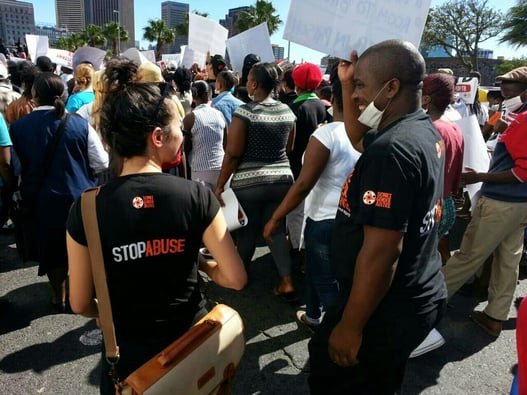
Protest in Cape Town, South Africa
The first program I developed at Sonke was in prisons, a topic which remains a priority to me. We worked with activists who were currently and previously incarcerated, and advocated for access to HIV and tuberculosis care in prisons, and for the adoption of policies to address sexual abuse in prisons (this is a serious problem there, as it is here in the United States). It was extremely challenging work because people in conflict with the law are some of the most despised and stigmatized members of society. This owes in part to systemic racism and classism stemming from the legacy of colonialism and apartheid. But it also flows from the high levels of violent crime that in certain communities can rival conflict zones, and occur with impunity. To shift public narratives, we produced films and radio programming, worked across coalitions, and negotiated with policymakers and prison officials. When diplomacy failed, we held the government to account in the courts. My experiences inside prisons showed me how carceral solutions can exacerbate the very harms we seek to affect, e.g. sexual violence in society.
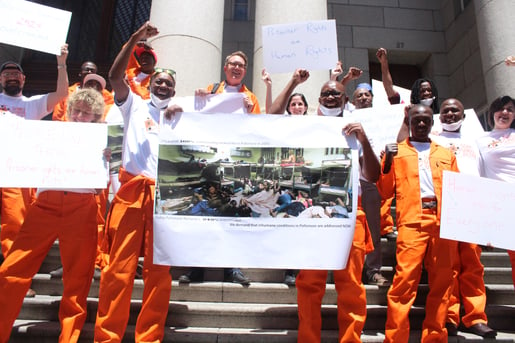
Colleagues and supporters protesting for South African prisoners' rights
Another highlight was crafting an amicus curiae intervention in a class action case against the entire South African gold mining industry. Our arguments convinced the court to permit thousands of women in rural communities left destitute by the malfeasance of the gold mining industry to seek compensation. Many women cared for terminally ill gold miners who developed preventable diseases like silicosis and tuberculosis from working in the mines. And they did this at great cost to themselves, their families, and their entire communities.
Aside from the above, I have worked on reproductive, maternal, newborn, and child health policy in Malawi; expanded legal representation for women in Cambodian prisons; advised a global campaign to decriminalize LGBTQI, people living with HIV, sex workers, and drug users; and worked on post-conflict relief and development projects in Pakistan, Afghanistan, Sri Lanka, and Iraq.
Most recently, I worked at Harvard Law School’s Human Rights Program, where I directed the Academic Program. I oversaw fellowship programs and worked with visiting scholars and practitioners. I mentored and trained human rights students, and supported them as they launched their careers. In terms of scholarship, I studied the relationship between human rights, criminalization, and incarceration. I researched how international human rights systems support the expansion and contraction of criminal law, and how they can both question and reinforce incarceration as a core feature of criminal punishment around the world. I also began to study the issue of sexual violence in conflict, focusing on how it occurs against men and boys, and in places of detention. I look forward to continuing all of this from the Kroc School.
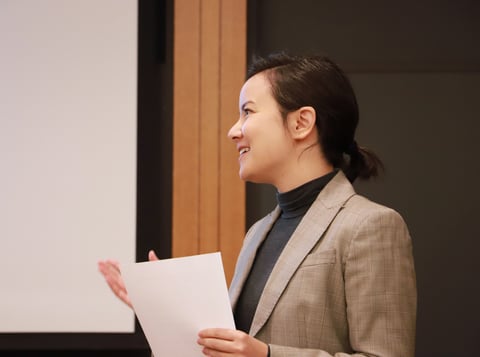
Speaking at the Harvard Law School’s Human Rights Program
What are you most looking forward to about your new role at the Kroc School?
At this moment, the Kroc School’s mission is more vital than ever. We are facing catastrophic climate change, and threats to democracy, peace, and human rights here and around the world. The next generation of changemakers and peacebuilders has to be more audacious and effective than the last. I’m excited to help foster an inclusive environment in which students can gain the theoretical grounding and practical skills needed to not only succeed, but be resilient and thrive on this challenging and critical path.
What do you hope to accomplish in your first year with the Kroc School?
I just joined last month, so I’m currently on a listening tour across the school and with my counterparts at the university. I’m eager to get to know all of the Kroc students and my colleagues. The Academic Programs unit is comprised of new staff, so I’m focused on building a productive team dynamic, and determining our short- and medium-term priorities to ensure that the academic year goes off without a hitch. While my specific role is new, I have the invaluable benefit of Professor Necla Tschirgi, who served as the Associate Dean and is now the Faculty Advisor for Academic Programs. I will be taking full advantage of all of the wisdom she has to offer.
In recent years, the Kroc School has gone through unprecedented growth, both in academic programming and enrollment. So one thing I will focus on is establishing policies, systems, and services that not only speak to this “new normal” but also facilitate ongoing change. Dean Márquez has a big vision that I’m here to support. My goal is to ensure that Academic Programs are dynamic, evolving, and always delivered to the highest standard.
How do you like to spend your time when you're not working?
I’m thrilled to be back in my home state after years away. I have family throughout California and in Japan, which is much more accessible from San Diego than Cambridge or Cape Town. In my spare time, I study martial arts—Muay Thai and Jiu Jitsu—and I like to paint. I also practice meditation and go on periodic silent retreats. But I’m not always serious! I’m excited to check out the great restaurants, watering holes, and music and art venues that San Diego and communities across the border have to offer.
Ready to advance on your journey as a peacebuilder? Check out the Kroc School’s academic programs.
Contact:
Kevin Dobyns
kdobyns@sandiego.edu
(619) 260-7618

About the Author
The Joan B. Kroc School of Peace Studies (Kroc School) at the University of San Diego is the global hub for peacebuilding and social innovation. Founded in 2007, the Kroc School equips the next generation of innovative changemakers to shape more peaceful and just societies. We offer master's degrees in peace and justice, social innovation, humanitarian action, conflict management and resolution, and a dual degree in peace and law — programs that have attracted diverse and dynamic students from more than 50 countries. In addition to our graduate programs, the Kroc School is home to the Kroc Institute for Peace and Justice (Kroc IPJ). Founded in 2001, the Institute supports positive change beyond the classroom. Through groundbreaking research, experiential learning, and forward-thinking programs, the Kroc School and Kroc IPJ are shaping a future in which peaceful co-existence is the new normal.





